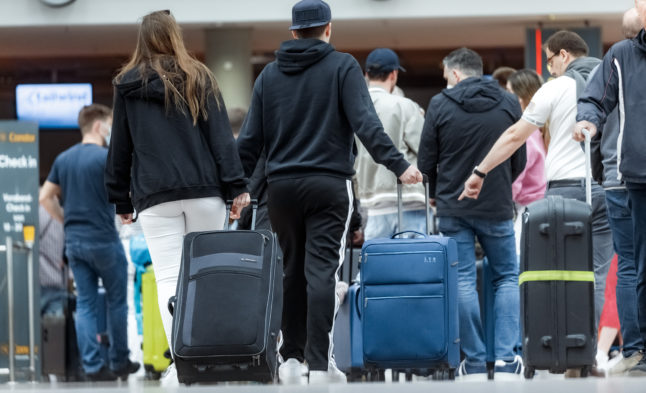The Brexit transition period ended on January 1st 2021, but it’s been a turbulent few years with Covid-related restrictions, which mean many people may not have travelled abroad since then. Here’s what you should know about the rules for travelling and moving to Germany post-Brexit.
Can I visit Germany from the UK on holiday?
Absolutely. But you do have to stick to certain rules on how long you can stay in Germany (and other EU countries) without a visa.
“British citizens do not require a visa for the Schengen Member States, if the duration of their stay does not exceed 90 days within any 180-day period,” says the German Missions consular service in the UK.
You can find a full explanation of the 90-day rule from our sister site, The Local France, HERE, along with the Schengen calculator that allows you to work out your allowance.
READ ALSO: Passport scans and €7 fees: What will change for EU travel in 2022 and 2023
Note that if you were living in Germany before January 1st 2021, different rules apply. People in this scenario should have received a residence permit – known as the Aufenthaltstitel-GB – from the German authorities, which proves their right to remain in Germany with the same rights as they had before Brexit.
READ ALSO: Reader question: How can I re-enter Germany without my post-Brexit residence card?
Can I move to Germany from the UK after the Brexit transition period?
Yes. But if you are coming to Germany to live and work, you will need to apply for the right documents, like other so-called ‘third country nationals’. All foreigners from outside the EU who want to to stay in Germany for more than three months have to get a residence permit (Aufenthaltstitel).
As we touched on above, citizens from some countries (including the UK, USA, Canada, Australia, Japan, Israel, New Zealand and Switzerland) are allowed entry into Germany without a visa and can apply for a residence permit while in the country. You can contact the Foreigners Office (Ausländerbehörde) in your area to find out how to get a residence permit.
You’ll need various official documents, such as a valid passport, proof of health insurance and proof that you can support yourself. You usually receive your residence permit as a sticker in your passport.

Germany has a well-documented skilled worker shortage at the moment so there are work permit options to consider that may suit your circumstances.
For the work visa for qualified professionals, for instance, your qualifications have to be either recognised in Germany or comparable to those from a German higher education facility.
You may also be able to get an EU Blue Card. This residence permit is aimed at attracting and enabling highly qualified third-country nationals to live in the EU.
It comes with benefits, including the right to to request and bring family members to the country, and shortcuts for applying for permanent residency.
READ ALSO: EXPLAINED: How German citizenship differs from permanent residency
When applying for a Blue Card in Germany this year, you have to earn a minimum gross salary (before tax) of €56,400 – down from €56,800 in 2021.
In so-called shortage occupations (Mangelberufe), where there is a high number of unfilled positions, the minimum gross salary is €43,992 – down from €44,304 in 2021.
Shortage occupations include employees in the sectors of mathematics, IT, natural sciences, engineering and medicine.
If you want to come to Germany from the UK to study then you also need to apply for a visa. For this you may need proof of acceptance to the university or higher education institution of your choice and possibly proof of your German language skills.
Check out the useful government website Make it in Germany for more detailed information, as well as the German Missions in the UK site, which has lots of info on travel after Brexit, and on visas.
What else should I know?
The German government plans to reform the immigration system, although it’s not clear at this stage when this will happen.
It will move to a points-based system, inspired by countries like Canada, where foreigners will have to score above a certain threshold of points to get a residence or work permit.
This scoring system will be set by the government, but it will include factors like language skills, family connections to the country, specific qualifications or work-related skills, or the amount of money in your bank account.
Keep an eye on The Local’s home page for updates on the changes to immigration laws.
Have you moved to Germany – or are thinking about moving – after the Brexit transition period and want to share your experiences? Please get in touch by emailing [email protected]




 Please whitelist us to continue reading.
Please whitelist us to continue reading.
Member comments